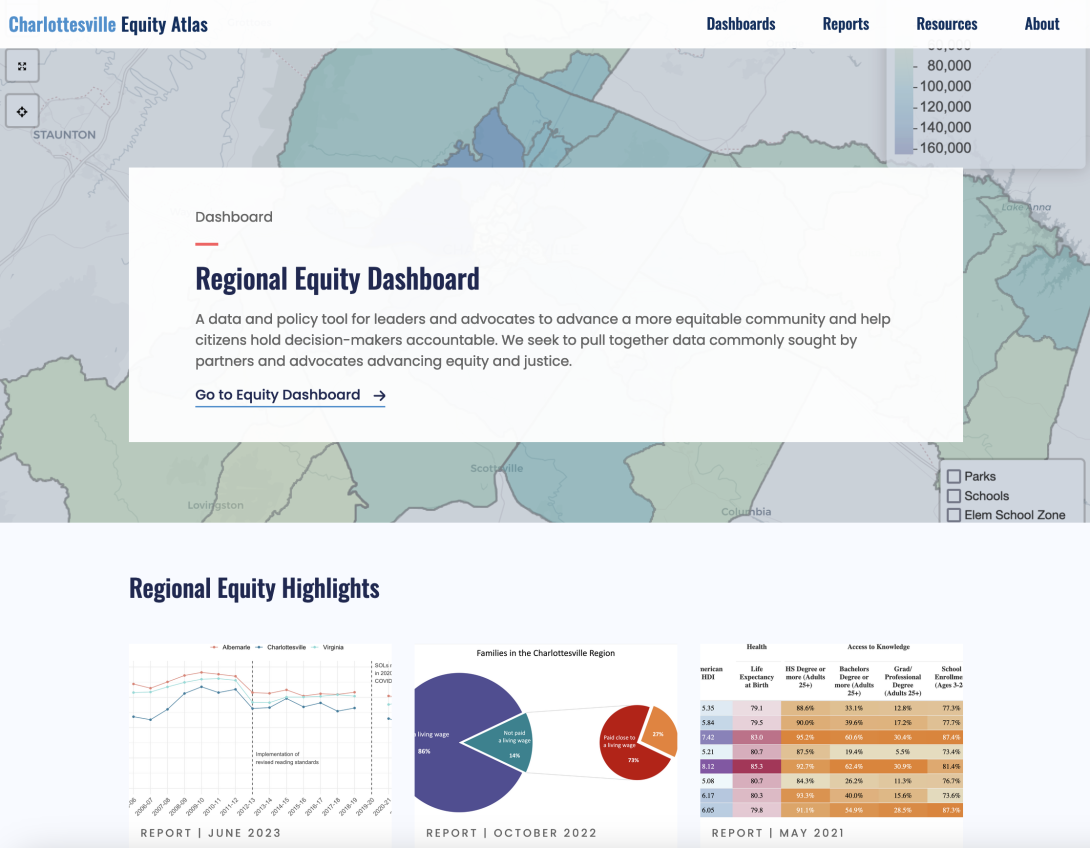Charlottesville Regional Equity Atlas
A hub for regional equity data tools and reports that enable data-informed advocacy to support community building and collective action for change.
Local School Demographics
Demographic composition of local schools provided by the Virginia Department of Education
Charlottesville Urban Heat Islands
Exploring the impact of rising temperatures and tree canopy on Charlottesville neighborhoods.
Stepping Stones
Trend data for a selection of measures on the well-being of children and families in the City of Charlottesville and Albemarle County.
Orange Dot Report
The Orange Dot Report on Family Self-Sufficiency shares economic indicators for the Charlottesville Region.
Research Summary
Albemarle County Equity Profile
The Albemarle County Equity Profile analyzes various conditions across demographic groups and geographic areas that contribute to well-being.
Research Summary
Reading and Math SOL Test Outcomes in Virginia
Examine gaps in pass rates for Reading and Math SOL tests for VA school divisions.
Eastern Shore of Virginia Climate Equity Project
The Environmental Institute-led Climate Equity Project addresses inequity and information gaps to improve climate adaptation and resilience on the Eastern Shore of Virginia
Research Summary
Picturing Climate Justice: Data Stories
Picturing Climate Justice provides a window into local actions calling for a just response to climate change.
Research Summary
Charlottesville's Frontline Workers
Data analysis about frontline and essential workers in our region, done in support of the Frontline Workers Fair Treatment Charter
Research Summary
COVID-19 Shelter in Place Burden
How the eases and burdens of sheltering in place are distributed across the Charlottesville region
Research Summary
Charlottesville Stop and Frisk
Dashboard on the who, where, and why of stop and frisk events in Charlottesville
Research Summary
Transportation Equity and Accessibility in the Charlottesville Region
Transportation in the region is significantly inequitable, privileging systems and policies that require
access to automobiles and the ability to afford them.
